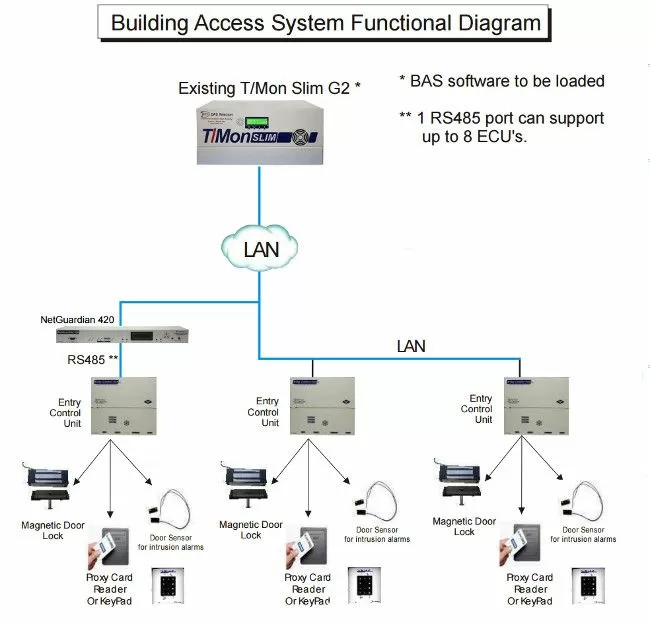A high-quality building access system will enhance the security of your sites.
This guide to will show you how to ensure the safety of your revenue-generating equipment.
1-800-693-0351
Have a specific question? Ask our team of expert engineers and get a specific answer!
Sign up for the next DPS Factory Training!

Whether you're new to our equipment or you've used it for years, DPS factory training is the best way to get more from your monitoring.
Reserve Your Seat TodayWith the incorporation of various electronic devices into a security system, the jobs of those monitoring the facilities is made easier and more efficient. Cameras allow greater visibility and event-recording, motion sensors can trigger lights or alarms depending on the applications, and alarm systems can alert the proper authorities in the event that something happens that needs immediate attention beyond available resources at the time. Many people have also begun to include a wide array of devices into maintaining the security of a building at the entry/egress points as well.

Electronic Door Control is a means for ensuring that a door will remain secured when you want it to stay that way.
For a well-equipped BAS to be effective, the operators must have a way to guarantee that those who are allowed to enter and exit are freely able to do so, while at the same time keeping intruders at bay. The ability to do away with mechanical keys in most instances, the advantages of keyless entry, ability to monitor and record access attempts, and the added efficiency of no longer having to physically operate a locking mechanism all lead to Electronic Door Control becoming an essential part of the securities puzzle.
While devices such as keypads and proximity card readers are designed to provide a method of individual access permission and guaranteed benefits of not being able to "pick" a lock allow for greater security before anyone even enters the building. In order for these units to function, they must be linked up to an Entry Control Unit on the interior of the facilities. The ECU functions as a data processor between the locking mechanisms, database, and access point. In the event that a card is scanned or a PIN entered, the ECU sends a signal to the database requesting validation.
If approved, the ECU triggers a locking mechanism to open. From electronic deadbolts and catch-plates that are secured until a signal stating other-wise is received, to strong electromagnetic locks, there are a wide array of equipment designed to secure the door.
Upon exiting, there are also several choices to consider. Most applications are not designed to keep people in, so in this case, simple egress measures such as a push-to-access button or a motion detector linked up to the ECU can allow for simple unlocks without much forethought, while in high-security facilities, this can be done again through an access point interface, or through the visual confirmation and approval of those in control of the facilities and monitoring.
Imagine that you are utilizing an all-analog security system. If an employee with key-holding responsibilities were to lose them, or become separated from the company, those keys would need to be returned, but how many times have you made a copy of a key that said DO NOT COPY? What if those keys came up missing? The solutions to a compromised analog system can be incredibly costly if not done properly. The contrasting abilities offered by EDC devices allow for near-instantaneous changes to permission linked to a password or card. If a key card or PIN code were to become lost/shared or if the employee were to lose permissions, with a couple quick keystrokes, all permissions and access rights can be blocked. No messy problems that warrant an emergency locksmith or multiple site-visits to confirm access abilities.